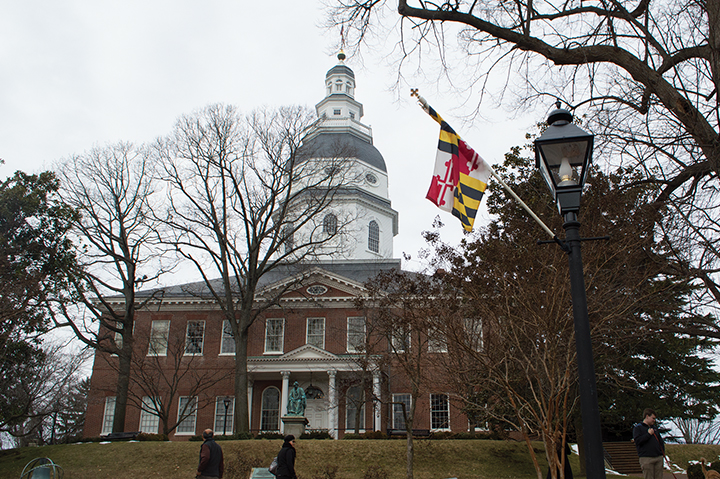Maryland lawmakers heard testimonies Tuesday on a pair of bills that would mandate a slew of changes to how the state’s public universities handle mold outbreaks on their campuses.
One bill, HB 1428, would mandate inspections of school buildings on a regular basis. It would also establish regulations governing exposure limits to mold and how institutions must identify and eliminate the fungus.
The other bill, HB 1052, would require the University System of Maryland to prepare an environmental report on the presence of mold and other contaminants, including asbestos, in campus buildings.
The bills were heard simultaneously in the House of Delegates. Del. Jared Solomon (D-Montgomery County), lead sponsor of HB 1428, said it was a coincidence that bill ended up being similar to the latter piece of legislation, which Del. Mary Lehman (D-Prince George’s and Anne Arundel counties) was the lead sponsor for.
“Delegate Lehman and I were both working on parallel tracks and we didn’t actually discover that,” he said, “until the bill introduction deadline.”
The bill comes after students found mold in at least 10 dorms on the University of Maryland’s College Park campus in 2018.
Olivia Paregol, a resident of Elkton Hall — where mold was so rampant that students were temporarily relocated to hotels — died of complications from adenovirus. While mold has no link to adenovirus, it can irritate a person’s respiratory tract and weaken their immune system. Testimony from multiple parties made it clear the events of 2018 weighed heavily in the minds of those present.
Josie Shaffer, a sophomore government and politics major, took a break from her internship with a state senator to testify in favor of HB 1428.
Read more: [UMD faculty and students say they’ve been getting sick from mold in Woods Hall for years]
Shaffer was part of one of the last groups to be evacuated from Elkton in November 2018, she said. She suspects mold was responsible for a variety of ailments she suffered at the time.
“I began to be very sick,” Shaffer said at the hearing. “I developed a cough as well as a sore throat and felt fatigued.”
Shaffer said she was sick that entire semester, which caused her to miss an exam and classes. Her symptoms didn’t get better until she finally went home, she added.
Lance Kilpatrick, a representative of the local chapter of the American Federation of State, County and Municipal Employees union, testified in favor of the bill, saying that schools like this university lack training, guidance and safety mechanisms that are already in place at other university system institutions.
“We shouldn’t have a situation where College Park sends in our folks — who are on the front line of cleaning these things, with gloves and Clorox wipes — and yet at UMBC they actually have a coordinated strategic plan on how to engage and constantly address [mold situations],” Kilpatrick said.
Under the proposed legislation, once the presence of mold was confirmed via one of the newly-mandated inspections, Maryland public institutions would have to report it to every student, faculty and staff member and feature a prominent mold hazard notice on the school’s website.
Later on in the hearing, officials from the university system and this university’s administration presented the committee with multiple qualms with the bills.
Read more: [UMD will install humidity sensors to prevent mold in 10 more buildings]
“We fully support the intent of these bills,” said Patrick Hogan, vice chancellor for government relations with the University System of Maryland. Even so, he and other officials warned of potential high costs of regular inspections and even the necessity of the proposed changes, given the steps the university system has taken to combat mold.
This university’s Residential Facilities department began implementing a “moisture control plan” last year to limit mold growth on campus, which included installing portable dehumidifiers in single-occupancy rooms such as Bel Air, Centreville, Denton and Easton halls. In addition to getting the dehumidifiers, some dorms would see more permanent changes; Elkton Hall, for example, was set to have its HVAC and dehumidification systems upgraded.
Valerie Hall, a doctoral student studying anthropology at this university, was critical of the university’s response to mold on campus. In fall 2018, she said, she noticed several of her friends experiencing severe rashes.
Though the university stepped in with mold abatement measures, Hall said when she and her colleagues returned in 2019, they again discovered mold in their workplace — as well as in books and other places in the building.
“There was a general sense of frustration across the department at that time that the university has addressed the symptoms of mold in our building, but not an overall cure,” she said.



